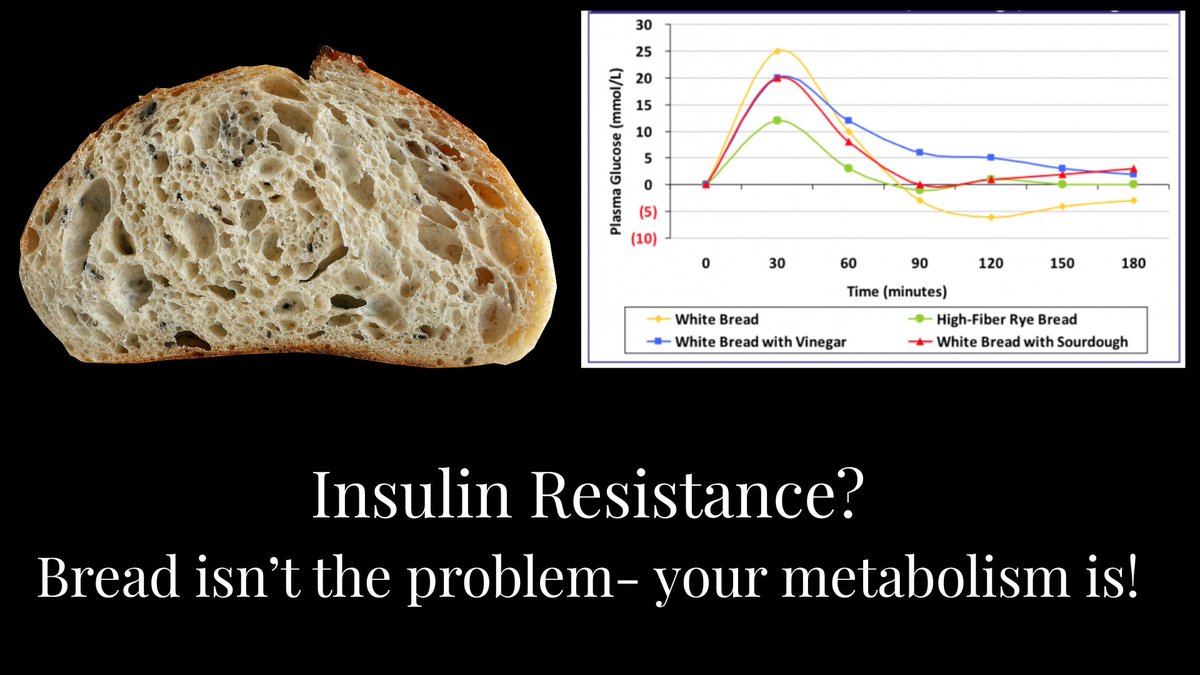Your B12 levels are 'normal.' But you're tired, foggy, and anxious.
Here's the truth: You might have functional B12 deficiency, and it's silently damaging your brain, nerves, and energy.
A Thread on why "Normal" B12 levels can still leave you deficient:
Here's the truth: You might have functional B12 deficiency, and it's silently damaging your brain, nerves, and energy.
A Thread on why "Normal" B12 levels can still leave you deficient:

1. The "Normal" B12 Lie
Your doctor says your B12 is "normal" at 300 pg/mL. But you feel terrible.
• Lab "normal" range: 200-900 pg/mL
• Functional optimal range: 500-1000 pg/mL
• Neurological symptoms start: Below 400 pg/mL
Your doctor says your B12 is "normal" at 300 pg/mL. But you feel terrible.
• Lab "normal" range: 200-900 pg/mL
• Functional optimal range: 500-1000 pg/mL
• Neurological symptoms start: Below 400 pg/mL
The problem: Labs use ranges based on sick populations, not optimal health.
You can be "normal" and still be functionally deficient.
You can be "normal" and still be functionally deficient.
2. What Functional B12 Deficiency Really Means
Functional deficiency = Your B12 levels aren't low enough to cause anaemia, but they're too low for optimal brain and nerve function.
You're not crazy - you're functionally deficient.
Functional deficiency = Your B12 levels aren't low enough to cause anaemia, but they're too low for optimal brain and nerve function.
You're not crazy - you're functionally deficient.
Why this happens:
- Standard tests miss cellular B12 status
- Early deficiency affects brain before blood
- Stress and medications increase B12 needs
- B12 needs are individual (genetics, stress, age)
- Standard tests miss cellular B12 status
- Early deficiency affects brain before blood
- Stress and medications increase B12 needs
- B12 needs are individual (genetics, stress, age)
3. The Hidden Symptoms Nobody Connects to B12
Brain symptoms:
- Difficulty concentrating
- Anxiety and depression
- Mood swings and irritability
- Brain fog and memory issues
Brain symptoms:
- Difficulty concentrating
- Anxiety and depression
- Mood swings and irritability
- Brain fog and memory issues
Physical symptoms:
- Balance problems
- Shortness of breath
- Tingling hands and feet
- Chronic fatigue despite sleep
These symptoms can persist for years with "normal" B12 levels.
- Balance problems
- Shortness of breath
- Tingling hands and feet
- Chronic fatigue despite sleep
These symptoms can persist for years with "normal" B12 levels.
4. Why Standard B12 Tests Are Useless
Serum B12 measures: B12 in your blood
What matters: B12 getting into your cells
Serum B12 measures: B12 in your blood
What matters: B12 getting into your cells
Better tests to request:
- Homocysteine: Elevated in B12 deficiency
- Holotranscobalamin: "Active" B12 available to cells
- Methylmalonic acid (MMA): Rises when B12 is functionally low
- Homocysteine: Elevated in B12 deficiency
- Holotranscobalamin: "Active" B12 available to cells
- Methylmalonic acid (MMA): Rises when B12 is functionally low
If MMA is high or homocysteine is elevated, you're functionally B12 deficient regardless of serum B12.
5. The Absorption Problem
Absorption blockers:
- Alcohol consumption
- Metformin for diabetes
- Age (stomach acid decreases)
- Digestive issues (SIBO, Crohn's)
- Stomach acid medications (PPIs, H2 blockers)
Absorption blockers:
- Alcohol consumption
- Metformin for diabetes
- Age (stomach acid decreases)
- Digestive issues (SIBO, Crohn's)
- Stomach acid medications (PPIs, H2 blockers)
40% of people can't absorb B12 properly, even with adequate intake.
The solution: Bypass the gut with sublingual or injectable B12.
The solution: Bypass the gut with sublingual or injectable B12.
6. The Methylation Connection
B12 is essential for methylation, your body's cellular repair system.
The MTHFR factor: 40% of people have genetic variants requiring methylated B12 (methylcobalamin), not regular B12.
B12 is essential for methylation, your body's cellular repair system.
The MTHFR factor: 40% of people have genetic variants requiring methylated B12 (methylcobalamin), not regular B12.
When B12 is functionally low:
- DNA repair slows down
- Energy production decreases
- Neurotransmitter production drops
- Detoxification becomes impaired
- DNA repair slows down
- Energy production decreases
- Neurotransmitter production drops
- Detoxification becomes impaired
7. Why Vegans Aren't the Only Ones at Risk
The shocking truth: Many meat-eaters are B12 deficient due to absorption problems, not intake issues.
The shocking truth: Many meat-eaters are B12 deficient due to absorption problems, not intake issues.
High-risk groups:
- Anyone over 50 (stomach acid declines)
- People on acid-blocking medications
- Those with digestive issues
- Chronic stress sufferers
- Heavy alcohol users
- Anyone over 50 (stomach acid declines)
- People on acid-blocking medications
- Those with digestive issues
- Chronic stress sufferers
- Heavy alcohol users
8. The Right Form of B12 Matters
Cyanocobalamin: Cheap, synthetic form in most supplements
Methylcobalamin: The Active form your cells can use immediately
Adenosylcobalamin: Mitochondrial form for energy production
Cyanocobalamin: Cheap, synthetic form in most supplements
Methylcobalamin: The Active form your cells can use immediately
Adenosylcobalamin: Mitochondrial form for energy production
For functional deficiency: Use methylcobalamin or hydroxycobalamin, not cyanocobalamin.
Dosing: 1000-5000 mcg daily for therapeutic effect.
Dosing: 1000-5000 mcg daily for therapeutic effect.
9. The Nerve Damage Timeline
B12 deficiency damages nerves progressively:
- Months 1-6: Fatigue, brain fog, mood changes
- Months 6-12: Tingling, numbness, balance issues
- Years 1-2: Permanent nerve damage if untreated
B12 deficiency damages nerves progressively:
- Months 1-6: Fatigue, brain fog, mood changes
- Months 6-12: Tingling, numbness, balance issues
- Years 1-2: Permanent nerve damage if untreated
The critical point: Early symptoms are reversible.
Advanced nerve damage is permanent.
Don't wait for "severe" deficiency - optimise now!
Advanced nerve damage is permanent.
Don't wait for "severe" deficiency - optimise now!
10. The B12 Optimisation Protocol
Step 1: Get proper testing (MMA, homocysteine, B12)
Step 2: Use methylcobalamin 1000-5000 mcg daily
Step 3: Take sublingual or injectable form
Step 4: Add B6 and folate (work together)
Step 5: Retest in 8-12 weeks
Step 1: Get proper testing (MMA, homocysteine, B12)
Step 2: Use methylcobalamin 1000-5000 mcg daily
Step 3: Take sublingual or injectable form
Step 4: Add B6 and folate (work together)
Step 5: Retest in 8-12 weeks
Pro tip: If you feel better within days of high-dose B12, you were functionally deficient.
11. The Quick Self-Test
Try sublingual methylcobalamin (2000-5000 mcg) for 5 days.
If you feel dramatically better, you have found your answer.
Try sublingual methylcobalamin (2000-5000 mcg) for 5 days.
If you feel dramatically better, you have found your answer.
If you're functionally deficient, you'll notice:
- Reduced anxiety
- Improved sleep quality
- Increased energy within 2-3 days
- Clearer thinking and a better mood
- Reduced anxiety
- Improved sleep quality
- Increased energy within 2-3 days
- Clearer thinking and a better mood
12. The Action Plan
1. Request advanced B12 testing (MMA, homocysteine)
2. Try therapeutic B12 (methylcobalamin 2000-5000 mcg)
3. Address absorption issues (stomach acid, medications)
4. Monitor symptoms and energy levels
5. Retest in 8-12 weeks to confirm improvement
1. Request advanced B12 testing (MMA, homocysteine)
2. Try therapeutic B12 (methylcobalamin 2000-5000 mcg)
3. Address absorption issues (stomach acid, medications)
4. Monitor symptoms and energy levels
5. Retest in 8-12 weeks to confirm improvement
Don't let "normal" lab ranges keep you feeling terrible when the solution might be a simple B12 optimisation.
Functional deficiency is more common than doctors realise.
Functional deficiency is more common than doctors realise.
My mission: Help people live a disease-FREE life—and age with strength.
That’s why I created an all-natural nighttime supplement to support Insulin sensitivity, Inflammation & Gut health. All while you sleep.
Join the early access list: youpeak.co.uk
That’s why I created an all-natural nighttime supplement to support Insulin sensitivity, Inflammation & Gut health. All while you sleep.
Join the early access list: youpeak.co.uk
Follow @dr_sumit_sharma for science-backed ways to reverse metabolic disease, optimise health and stay medication-free.
Share this with someone battling brain fog or fatigue, and stuck with “normal” labs. You might just save their health.:
Share this with someone battling brain fog or fatigue, and stuck with “normal” labs. You might just save their health.:
https://x.com/dr_sumit_sharma/status/1948722506224836900
• • •
Missing some Tweet in this thread? You can try to
force a refresh










